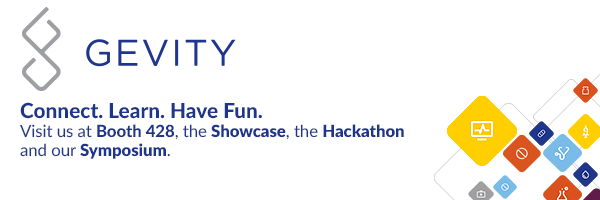Q&A with KERRY MUNRO
 Kerry Munro recently opened up to e-Health on his experience and expertise with social media, trends & challenges in the industry and lessons learned from the private sector. Read along for his Q&A on consumer health and his insight on Health Informatics (HI) and much more...
Kerry Munro recently opened up to e-Health on his experience and expertise with social media, trends & challenges in the industry and lessons learned from the private sector. Read along for his Q&A on consumer health and his insight on Health Informatics (HI) and much more...
Q1. The Health Care industry in Canada continues to face ongoing challenges and a need to address the connection between disparate data and professionals to drive results. What lessons have you learned from the private sector that might apply?In its most simple form what we are talking about is a network, albeit one that is complex by its very design. Yet this network really is not that dissimilar to other networks say, like Facebook or other newer technologies. Both have users, some who consume content and some who produce. There is a value exchange that is information and in many cases remedies, and there is a physical link that connects those who communicate. And of course there is the content itself. This oversimplification is why companies like Apple believe there is the opportunity to disrupt and change the dynamics of healthcare globally in the process and it is why the Health Care industry should ask itself whether it wants to maintain control over this network or ceed it to the likes of Apple, Amazon or Google and face the issues and challenges that many private sector companies have faced in being disintermediated. Q2. Social media and the rise of consumer health has taken health informatics by storm, but the sector continues to grapple with the challenges of data privacy and security – any insights to offer from challenges faced in the private sector?This is really the lightning rod at the heart of the issue. Given the sensitive nature of what is being shared no one wants their individual privacy or information violated. The funny thing is in many ways the fears that exist regarding the digitization of the process should be similar to the current fears of current (or former) communication. I remember one such instance where a consumer spoke about having his cancer test results inadvertently sent to his neighbour, and the concerns he held since he hadn't told his spouse. What's interesting is there are ways to protect the information even more securely than current methods. This is not that different from the commercial sector, where consumer data and information becomes a double edged sword – embraced by some part of the enterprise while feared by privacy and legal teams who worry about a breach or violation of privacy legislation. In the middle is the consumer or citizen, some of whom are digital millenials who want their information freely exchanged and others who don't. The key is not just security and privacy but the introduction of permission. Q3. Healthcare in Canada faces and ongoing shortage of professional resources with an impending leadership gap expected over the next ten years – what are innovative leadership development techniques are the private sector employing to close its own gap?This is a difficult one. Certainly globalization of talent helps open up the range of alternatives but at the same time even corporations are struggling to fill a void between the new 'digital' employee and the 'traditional' tenured employee who has years of experience and 'understands the business'. Technology becomes somewhat of an enabler that provides a level of efficiency but from a resource and leadership opportunity private sector organizations are challenged because they are looking for talent who has enjoyed the experience or has the specific desired skillsets and yet the current employment situation over the last several years has meant qualified individuals coming out of colleges and universities have lacked the opportunity to spend time developing their skills in their chosen field. In many ways it becomes an ecosystem issue that involves creating a desire for and of the industry, enabling those in colleges or universities to secure jobs within the industry and providing management and leadership training necessary to develop the specific skills needed under the umbrella of the sector. Q4. What is the best way to motivate teams/staff in Canadian healthcare that are coping with multiple challenges, including rapid, almost constant change in technology, the aging Boomers & serious funding shortages?Again a difficult question and one that the public sector also faces. The rise of the digital age and technology evolution has increased the pace of change in all industries along with a mantra of 'doing more with less' that comes from more restrictive budgets. It is truly a challenging time for anyone in the workforce to keep up and, as a result, I'm not sure there's a silver bullet answer in as much as a need for a concerted effort from multiple parties to provide the necessary funding to support and address the challenges you reference. Q5. Where do you see the “consumer” (patient) experience going in healthcare?This is an interesting question for sure given the previous questions. Despite all the challenges in front of us at this moment the evolution of the customer experience will likely be driven by simplification, digitization and personalization and we're seeing it today with things like the Apple health app. As the technology industry starts to place their focus on aggregating consumer data the degree of technological change towards information and the consumer experience will evolve, likely to a point where technology firms start to further encroach into the current ecosystem and forcing change in the process. I do envision a time when every individual carries their full health records in their coat pocket, scary as that may seem, and we are already seeing individual physicians using technology like FaceTime to provide remote care. Q6. What role do you see social media playing in the huge transformational, disruptive change coming our way in healthcare & e-Health?We're already seeing it today. Anyone can go online and self diagnose themselves by reading any one of a hundred (thousands) of sites. They can crowd source their conditions and get feedback as to what they may or may not have as an illness. And they can freely share their situation, or those of others, amongst their social media platforms. Events such as the Ice Bucket Challenge can give rise to a whole new way to support and potentially fund research or services, and the prevalence of social media in the lives of the generation (or two) that comes after us will force those of us today to rethink how we connect with, treat, service and support the millennials of today. |










